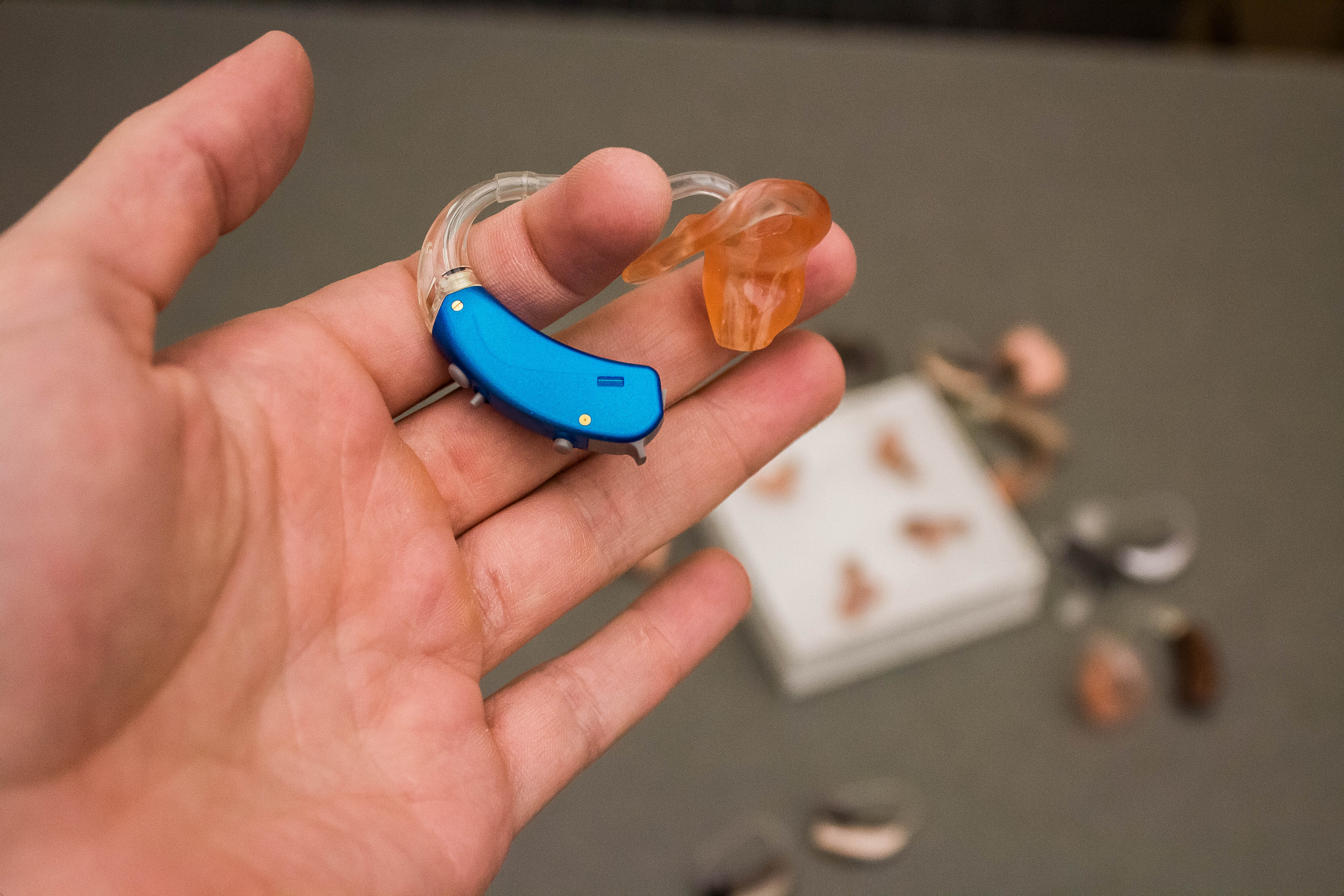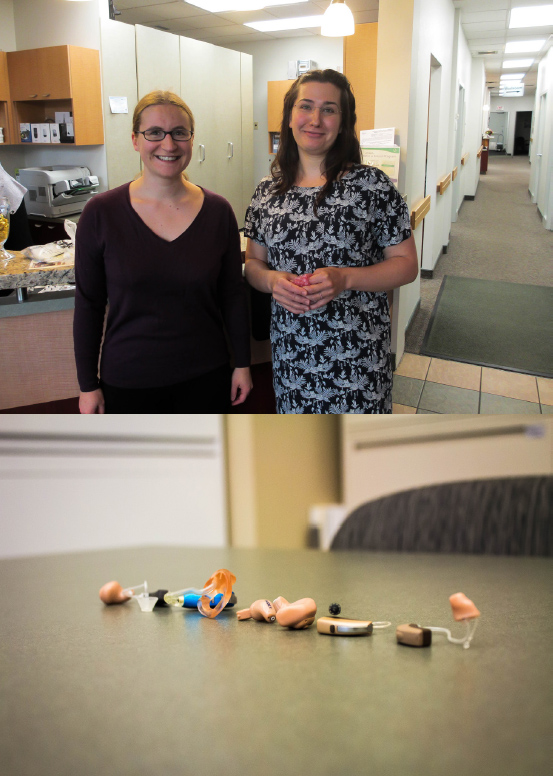
The Faculty of Rehabilitation Medicine's speech-langauge pathology program received $50,000 worth of digital hearing aids in September.
The University of Alberta's Department of Communication Sciences and Disorders (CSD) is alive with the sound of, well, sound.
Digital hearing aids worth $50,000 were recently donated to the Faculty of Rehabilitation Medicine to replace the old, out-of-date analog hearing aids used in speech-language pathology (SLP) and audiology/hearing science classes and labs.
It's all thanks to one great 'neighbour'-the Audiology Clinic of Northern Alberta (ACNA), which happens to be located only a couple of blocks from the Faculty's home at Corbett Hall.
"I had originally approached Larena Lewchuk [audiologist and daughter of ACNA founders] for a gift of time in the form of small group learning from some of her personnel at ACNA," Melanie Campbell, associate professor in the Department of Communication Sciences and Disorders explains. "She welcomed the idea with open arms. She really likes working with students and wanted to be supportive of both her profession and ours."
Campbell was able to bring all 57 of her students over to ACNA to meet with Lisa Ziegler, a hearing technician following on-campus group instruction from Natalie Roy, a hearing aid practitioner. In total, the students were allotted 14 hours of valuable instruction and tutoring time.
While students in the speech-language pathology program mainly work with clients that have speech/language/swallowing issues, there are instances where hearing loss also comes in to play.
"It's important for speech-language pathology students to be familiar with hearing aids and hearing technology. When they enter into their careers, they will often have patients who have hearing problems that accompany their speech issues. If this is the case, then they need to be able to troubleshoot common issues with hearing devices that they can either help fix or report to an audiologist," Campbell says.
Although audiology and speech-language pathology are two separate streams, Campbell says that students can't be expected to be fully prepared for careers in speech-language pathology without having some first-hand experience with audiologists and the ability to assist clients with their hearing aids.
"Speech-language pathologists acquire information from audiologists and integrate it into the lives of their patients with hearing loss - how can they excel at work, use the phone and so on."

TOP: Maija Jalkinene-Sargent, SLP class of 2017 accepts donation of
hearing aids from audiologist Larena Lewchuk on behalf of the CSD
Department and its 116 master's students.
BOTTOM: The digital hearing aids that were donated by Widex
Canada Ltd.
Aside from offering to help students learn about the ins and outs of hearing aids, Lewchuk thought that it was crucial for SLP students to put their new-found skills to use on some new and improved hearing devices of their own.
"I thought that we were getting a gift of time only, which is quite incredible on its own," Campbell says. "But to also learn that we were getting $50,000 worth of new hearing equipment? I couldn't believe it.
Larena had negotiated with Widex Canada Ltd., a well-known hearing aid manufacturer to try and get us some new equipment. She knew that we were using old equipment that really didn't work anymore, and she took it into her own hands. I was amazed."
Campbell was able to put the hearing aids to good use just last week with the scheduling of a practical exam. She says that she was able to put working hearing aids at each station for students to use-something she was never able to do before.
"It is so important for these students to learn about hearing loss and the devices that can be used to treat it or help aid those who are experiencing it. Many of our students will end up working in extended care, and literature shows that you can count on 80 per cent of individuals in extended care to have hearing loss."
With the donation of time and the new equipment, Campbell is now confident that her students have the tools that they need to be successful in providing services to clients with hearing loss during their speech-language pathology careers.
"To me, as a speech-language pathologist, being able to work with patients who have hearing loss is very necessary. I feel really good about the ability of our students to do that now.
I think the students also feel more confident in themselves. We really couldn't be luckier to have ACNA as a neighbour."
The Department of Communication Sciences and Disorders has been working with various audiology groups and government in hopes of establishing an audiology degree program to train more audiologists to serve the needs of seniors and families in Alberta and beyond.